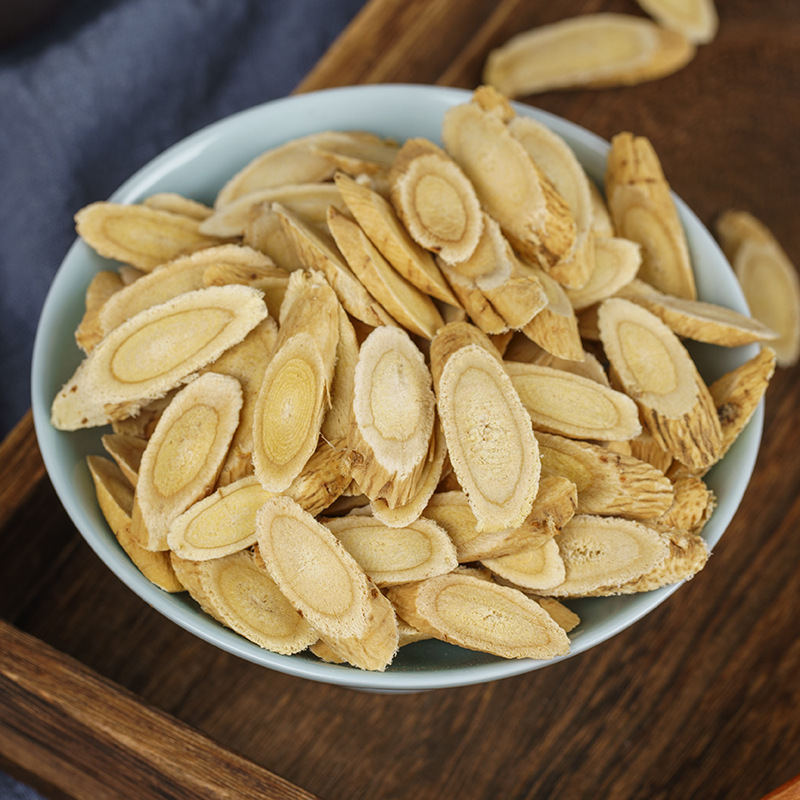
In the world of traditional Chinese medicine(TCM), astragalus (Astragalus membranaceus), called HuangQi(黄芪) in Chunese, is highly regarded as "qi-boosting star." This inconspicuous yellow root carries the wisdom of traditional health preservation and has become a treasure trove for both ancient and modern individuals combating fatigue and safeguarding health.
HuangQi is rich in active compounds such as polysaccharides and saponins, and is known as an "immune shield." Especially beneficial for those prone to seasonal illnesses or weakened constitutions , simply steeping 3-5 slices in water daily can help them fortify the body’s defenses. It is recorded in the books of traditional Chinese medicine(TCM) that astragalus is powerful in term of strengthening spleen and lung qi—office workers plagued by fatigue or shortness of breath may find a cup of astragalus tea acts like a "quick vitality recharge," quietly dispelling sluggishness. Better yet, ample qi and blood can impart a natural, radiant glow to the skin. Brewed with red dates or goji berries, it becomes a beautifying favorite.
The usage of this herb is versatile and effortlessly adaptable: add a few slices to chicken soup to get an extra layer of nourishment, or simmer it with millet porridge to get a soothing, stomach-friendly meal—ideal for those with digestive sensitivities. But, it’s necessary to note that this herb should be avoided during feverish colds or symptoms of yin deficiency (e.g., dry mouth, constipation). Those with unique constitutions should consult a TCM practitioner for better blends.
This "golden herb of vitality,"gifted by nature, guards our daily lives with gentle strength. Keep a jar of astragalus slices on the desk, and let each warm sip become a tender encounter with millennia of wellness wisdom.
Contact:
For market reports or sourcing inquiries:
Etan Zong
Email: Etan@bzjiahe.com
Website: www.bzjiahe.com







